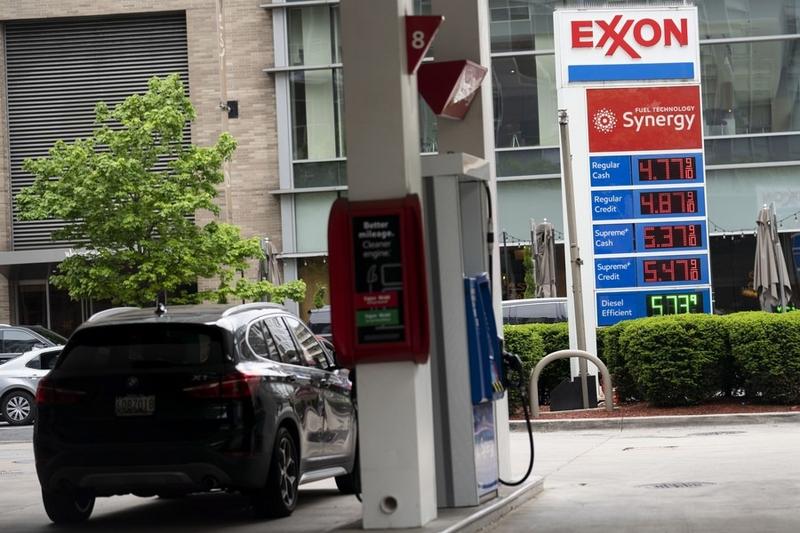 Gas prices are displayed at a gas station in Washington, DC, on May 11, 2022. (PHOTO / XINHUA)
Gas prices are displayed at a gas station in Washington, DC, on May 11, 2022. (PHOTO / XINHUA)
Proposed United States legislation targeting oil cartel OPEC and its allies for possible antitrust lawsuits could spark chaos and stoke tensions in global energy markets, experts say.
Anis Khayati, an economics professor at the University of Bahrain, said the punitive action that may be directed against the Organization of the Petroleum Exporting Countries would have a detrimental effect on the oil market.
The Criminalization of the OPEC+ agreement will make producers more likely to increase their production to avoid sanctions, Khayati said.
“This would have negative consequences for major oil-producing countries, including the United States itself, where the (Joe Biden) administration is already managing a difficult balance between oil and gas sectors and green energy policy goals,” Khayati said.
At the World Utilities Congress in Abu Dhabi on May 10, UAE Energy Minister Suhail Mohamed Al Mazrouei said OPEC was being unfairly targeted over the energy crisis, and warned that disruption to a long-standing system of production could throw the oil market off kilter, sending prices even higher — by as much as 300 percent — rather than bring them down.
Saudi Energy Minister Prince Abdulaziz bin Salman Al Saud warned that capacity in all energy sectors is falling even as demand for resources like crude oil and natural gas rises amid the Russia-Ukraine conflict. The conflict has led to surges in the prices of food and other commodities globally.
Saudi Arabia and the UAE, as major OPEC members, have remained hesitant to increase oil and gas exports amid pressure from the US and its allies, after prices of fuel, oil and gas surged in the European Union following the West’s imposition of sanctions on Russia’s exports. Oil prices hit more than $100 a barrel in March.
On May 5, the US Senate Judiciary Committee approved a bipartisan No Oil Producing and Exporting Cartels Act, or NOPEC, sponsored by Republican Chuck Grassley and Democrat Amy Klobuchar. Versions of the legislation have failed in the US Congress for over two decades. But lawmakers are now increasingly worried about rising inflation, driven in part by higher prices for US gasoline.
If passed, OPEC or its members, such as Saudi Arabia, could be sued in US federal court. Other producers like Russia, which works with OPEC in the wider group known as OPEC+ to withhold output, could also be sued, Reuters reported.
There has been domestic opposition to the NOPEC bill by groups like the US Chamber of Commerce and the American Petroleum Institute as it could backfire against US interests.
Rasha Al Joundy, a Gulf expert and senior researcher at the Dubai Public Policy Research Centre, said passing the NOPEC bill could be difficult as it needs an agreement inside the US Congress and the US president’s approval.
“This could be problematic especially with President Biden’s pursuit to cooperate with the Saudi government on many issues, including energy production. If NOPEC is passed, this cooperation could face many difficulties,” she said.
“In the end, I believe that the NOPEC bill is related to domestic policies… especially (as) Democrats worry that economic difficulties are affecting their popularity and could affect midterm elections,” she said.
Kamaruzaman Bin Yusoff, a Middle East political analyst and former professor of Middle Eastern politics at Universiti Teknologi Malaysia, said the US and its allies have failed to stop the Ukraine-Russia conflict, and that Russia’s rouble currency has posted gains despite the US-led Western sanctions on Moscow.
Khayati said the proposed legislation could harm relations between the US and OPEC member countries, many of whom are “important US allies”.
“Therefore, adopting NOPEC will complicate bilateral relations, and will likely affect cooperation on economic, political and security issues,” he said.


